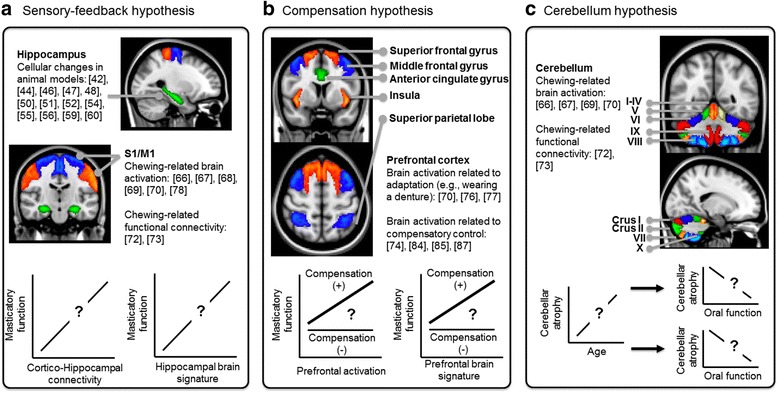Fig. 1.

The potential mechanisms underlying the brain-stomatognathic axis and the relevant hypotheses. a According to the sensory-feedback hypothesis, the cortico-hippocampal connectivity between the sensorimotor cortex (S1/M1) and the hippocampus, which deficits were observed in animal research, would be associated with the masticatory functions. b According to the compensation hypothesis, the age-related compensatory motor control, primarily mandated by the PFC, may be compromised in some elderly people. The deficits in the PFC and the network of cognitive control would be associated with both cognitive decline and masticatory dysfunction. c According to the cerebellum hypothesis, the cerebellar deficits would separately influence both motor and cognitive abilities. Therefore, cerebellar atrophy or decreased cerebellar function would be associated with both cognitive decline and masticatory dysfunction. The number in the bracket refers to the cited research evidence related to the hypotheses
